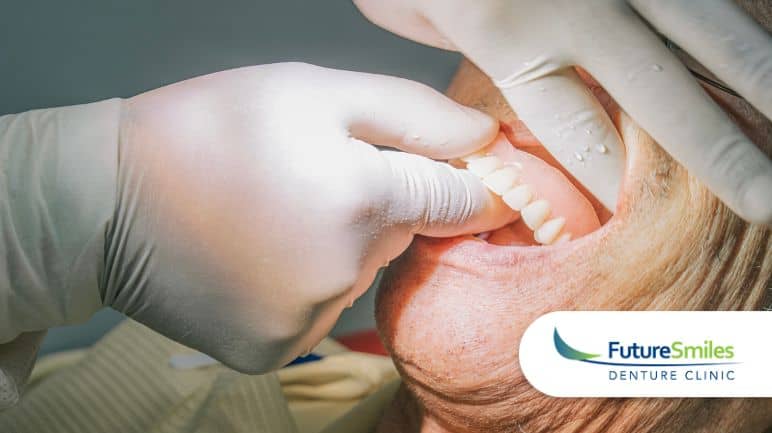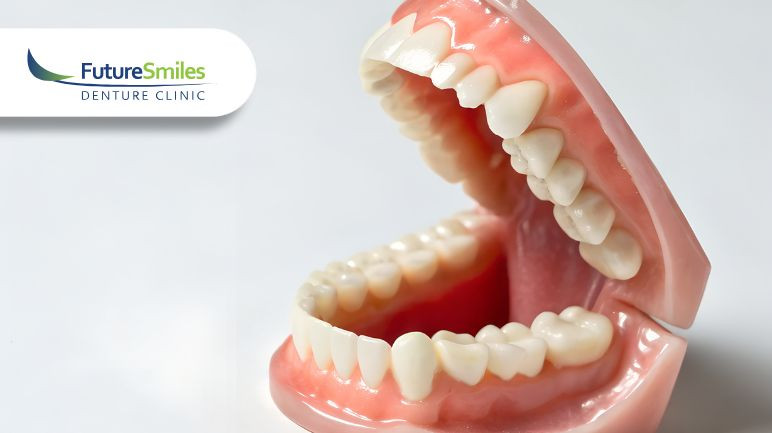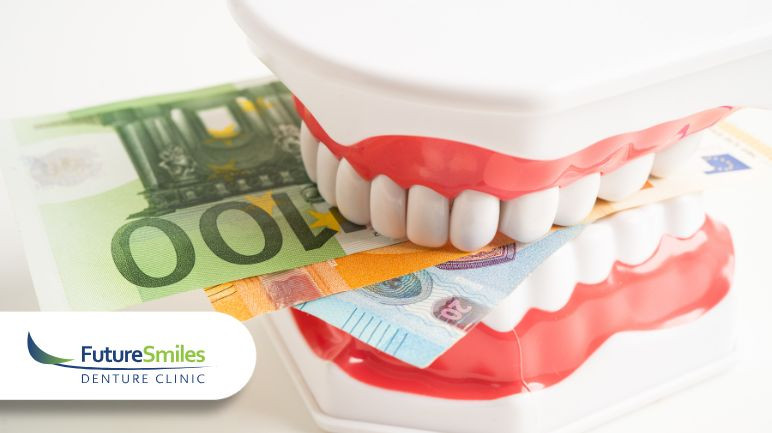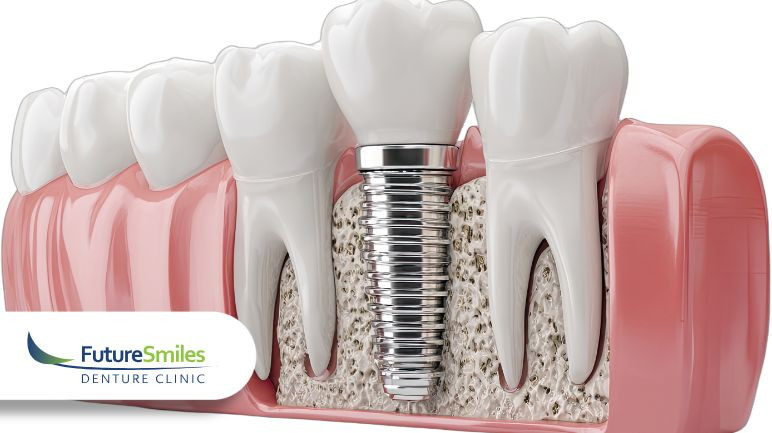Most concerning, poorly fitting dentures can lead to jawbone resorption and changes in facial structure. At Future Smiles Denture Clinic in Calgary, we emphasize the importance of regular denture assessments and adjustments to ensure a proper fit, maintaining your oral health and overall well-being.
Dentures are a lifeline for many, restoring not just the ability to eat and speak properly, but also the confidence that comes with a complete smile. However, when dentures don't fit correctly, they can cause a range of oral health issues that may lead to discomfort and more serious complications. At Future Smiles Denture Clinic in Calgary, Alberta, we understand the critical importance of well-fitting dentures and are committed to ensuring our patients enjoy the best possible oral health. In this blog, we will explore the impact of poorly fitting dentures on your oral health and provide insights into why regular assessments and adjustments are crucial.
Gum Irritation and Inflammation
One of the most immediate and noticeable impacts of poorly fitting dentures is gum irritation and inflammation. When dentures are too loose or too tight, they can rub against the delicate gum tissues, causing soreness and redness. This constant friction can lead to painful sores and even ulcers. Over time, chronic irritation can make it difficult to wear dentures comfortably, disrupting daily activities like eating and speaking.
At Future Smiles Denture Clinic, we see many patients who have suffered from gum irritation due to poorly fitting dentures. It's a common problem, but fortunately, one that can be resolved with timely assessments and adjustments. Ensuring a proper fit helps protect your gums and maintains the overall health of your mouth.
Difficulty Chewing and Digesting Food
Another significant consequence of poorly fitting dentures is difficulty chewing and digesting food. Dentures that slip or don't align properly can make it challenging to bite and chew food effectively. This can lead to a limited diet, often excluding nutritious foods that are harder to chew, such as fruits, vegetables, and lean meats.
When you're unable to chew your food properly, it can also impact your digestion. Large, improperly chewed food particles are harder for your stomach to break down, which can lead to digestive issues and poor nutrient absorption. Ensuring that your dentures fit well is essential for maintaining a balanced diet and supporting overall health.
Speech Problems and Social Discomfort
Speech is another area where poorly fitting dentures can have a profound impact. Dentures that move around in your mouth or don’t fit snugly can cause slurred speech or difficulty pronouncing certain words. This can be incredibly frustrating and embarrassing, particularly in social situations or professional settings.
At Future Smiles Denture Clinic, we understand the social and psychological effects of denture-related speech problems. Our goal is to help our patients feel confident and comfortable in their daily interactions. By providing regular denture assessments and ensuring a precise fit, we can help you speak clearly and confidently.
Bone Loss and Facial Structure Changes
Perhaps the most serious consequence of poorly fitting dentures is bone loss in the jaw and changes to your facial structure. When dentures do not fit properly, they do not stimulate the jawbone adequately. This lack of stimulation can lead to bone resorption, where the body starts to break down and reabsorb the bone tissue, resulting in a weaker jawbone.
As the jawbone deteriorates, it can lead to significant changes in your facial appearance, such as a sunken or collapsed look around the mouth. These changes not only affect your appearance but can also impact the fit of your dentures further, creating a vicious cycle of poor fit and worsening bone loss. Regular assessments and well-fitted dentures help maintain bone health and preserve your facial structure.
Poorly fitting dentures can have a wide range of negative effects on your oral health, from gum irritation and difficulty chewing to speech problems and bone loss. At Future Smiles Denture Clinic, we are dedicated to helping our patients avoid these issues through regular denture assessments and precise adjustments. By ensuring that your dentures fit well, we can help you maintain not only your oral health but also your overall well-being and confidence.
If you're experiencing any discomfort or issues with your dentures, don't wait to seek professional advice. Our team is here to provide the care and support you need to enjoy a comfortable, healthy smile. Remember, well-fitting dentures are not just about comfort—they are essential for your long-term oral health. Contact Future Smiles Denture Clinic today to schedule your assessment and take the first step towards better oral health and a happier, more confident you.
Written on behalf of Future Smiles Denture Clinic.
FAQs
Q: What are the signs that my dentures don't fit properly?
A: Poorly fitting dentures may cause gum irritation, sores, difficulty chewing, speech problems, and frequent slipping or discomfort.
Q: Why do I need regular denture adjustments?
A: Regular adjustments ensure that your dentures fit correctly, preventing issues like gum irritation, chewing difficulties, and bone loss.
Q: Can proper denture fit prevent changes in facial structure?
A: Yes, well-fitting dentures help maintain jawbone health, preventing bone loss and preserving your facial structure. Regular assessments are key to ensuring a proper fit.







